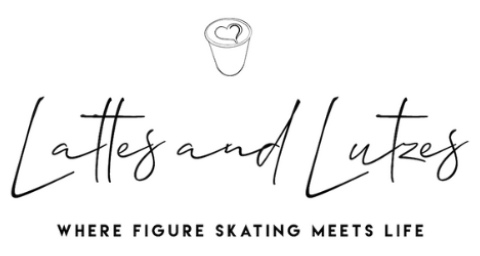
In the world of competitive figure skating, injuries are an unfortunate reality. Most are thankfully minor and take us off the ice for just a few days, but what happens when something more serious occurs? What is it like to be off the ice for an extended period of time, and more importantly, what does the return look like? I’m happy that my friend and fellow competitor, Rylie Smith, was willing to share her story. In our conversation, we delved into her journey of overcoming adversity, both physical and mental, as she shares her experiences of recovering from an ankle injury and a subsequent head injury.
First Came an Ankle Injury:
Rylie talked through what took her off the ice, starting with an ankle injury. During a normal pre-competition warm-up off the ice, Rylie recounts how she rolled her foot and landed on her ankle. What initially seemed like a minor incident quickly turned into a serious setback, with her ankle swelling to the size of a baseball. Despite initial uncertainty about the extent of the injury, the diagnosis confirmed a strain rather than a fracture. The road to recovery was fairly straightforward, marked by physical therapy, cautious rehabilitation, and a gradual return to the ice after a few months.
Next Comes a Head Injury:
Just as Rylie was regaining her confidence on the ice and beginning to compete again, a head injury threw her plans into disarray. A hard fall occurred during a routine practice on a simple move, leaving her grappling with symptoms resembling a concussion, including dizziness and sensitivity to light and noise. At first, Rylie didn’t think she was hurt that badly and continued skating for a little bit, but she knew something wasn’t right. It took a while to even get a proper diagnosis. So unlike the ankle injury, this recovery process was less defined, leading to uncertainty and frustration. Due to the time it took to get a proper diagnosis and the continued symptoms, Rylie was off the ice for more than ten months.
Navigating Uncertainty:
With two major injuries disrupting her skating career, Rylie faced a long period of uncertainty and doubt. She began working with a physical therapist last July. They worked on a lot of balance exercises, which began to build Rylie’s confidence. After a few months, she also started back with her own gym workouts, nothing strenuous, but it was a start. After months of balancing physical rehabilitation with mental resilience, persevering through setbacks and challenges, Rylie was determined to return to the ice.
Finally Cleared for a Return to the Ice:
Just a few weeks ago, Rylie was finally cleared to return to skate. She was thankful to have the off-ice exercises and the gym to begin building confidence. Despite progress in physical therapy, the fear of re-injury and some ongoing symptoms from the head injury loomed large, impacting her performance and mindset.
As Rylie returned to skating, she adopted a cautious approach, breaking down skills and rebuilding confidence step by step. She also shifted her goals and approach to skating. Because some symptoms of the head injury still linger today, Rylie has plenty of skating goals to strive for but has been fluid with the timeline. She knows there’s a return for her but is taking it day by day. Happy to be back on the ice!
Looking Ahead and Advice for Other Skaters:
Despite the setbacks, Rylie remains hopeful and determined. While the road to recovery may be long and uncertain, she is committed to taking each day as it comes, focusing on gradual progress and celebrating every milestone along the way. And that’s her best advice to others returning from injury. “It won’t be the same,” she says, “you may have more of a learning curve on a move or element. There will likely be mental blocks. It’s good to set goals for yourself. But it’s also best to be kind of fluid with the timelines.”
Through setbacks and challenges, Rylie continues to inspire with her unwavering commitment to her passion for skating, reminding us all that with courage and resilience, anything is possible.

0 Comments
Trackbacks/Pingbacks